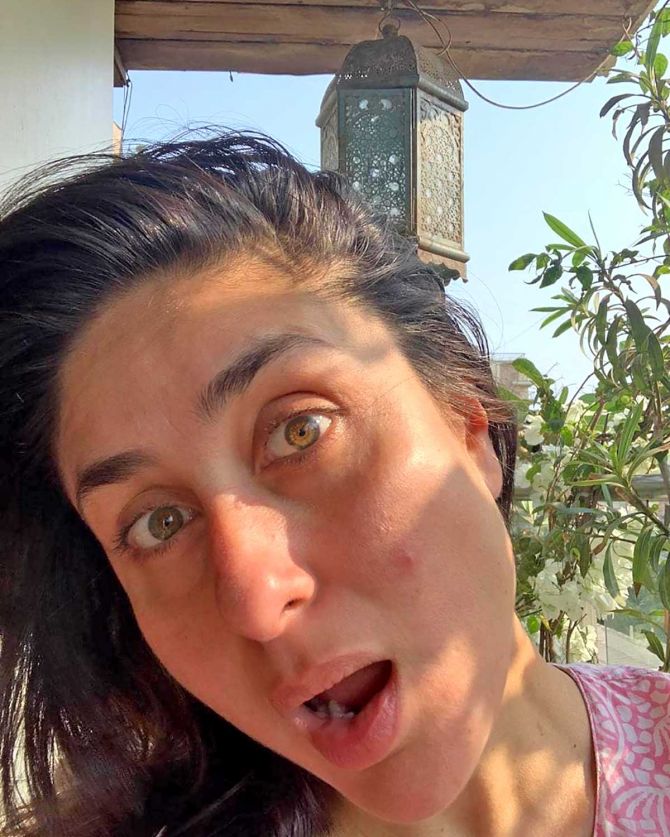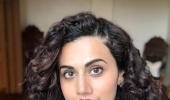Tackle your hair and skin problems with expert help from Dr Dinesh Jain.

Dear Dr Jain
My sister is 21 years old and has developed open pits on her face due to acne.
What should be done to make her skin clear and smooth?
Regards,
Rashmi Dhankhar
Breakouts of acne are frustrating and, if not treated on time, can lead to what is called acne scars or pits. This is a common problem.
The best way to manage and get rid of these pits is when you get the acne.
Treat it immediately, so that there is no chance of getting pits or scars.
Another option is to treat both the acne and the scars side by side, so that the newly developed scars can go away easily and the acne can be treated, preventing further scars.
Acne scars can be treated and facial skin can be brought to a stage of near normalcy.
Home remedies for acne scars
Apart from mild exfoliation by scrubbing or moisturising, there are no successful home remedies for acne scars.
Clinical options
The best treatment for acne pits and scars can be done at the dermatologist’s clinic. These include:
- Alpha hydroxy acid peels
- TCA peels
- Microdermabrasion
- Microneedling
- Fractional RF treatment
- Scar revision surgery
I would advise a mixture of different treatments that have given significant results in treating pits and scars -- namely sublative RF and microneedling with growth factors. Your dermatologist can explain these procedures to you in detail.
Hi.
I'm 24 years old and, since eight years, I'm having dry dandruff; because of this, there is a rash kind of fungal infection on my back and chest.
I've tried Ayurveda, homeopathy and every other remedy, but no use.
I even went bald two years ago, but the dandruff is still as stubborn as it was.
Please help me. I'm fed up of this dandruff and hairfall and the fungal infection happening because of it.
Ankita Chavan
Dandruff can be caused due to many reasons.
It is true that fungus is a major contributor to an itchy and flaky scalp.
The common causes of dandruff are:
- Yeast like Fungus Malassezia that feeds on the scalp oils
- Dryness of scalp and skin
- Skin conditions like psoriasis, seborrheic dermatitis and eczema
- Sensitivity to skin care products
Mild to moderate dandruff can be controlled with a regular gentle shampoo that will reduce oil and flakes.
If that doesn't help, a medicated dandruff shampoo -- preferably containing zinc pyrithone or selenium sulphide, will help.
Most people can tolerate a medicated shampoo two to three times a week, combined with regular shampooing in-between.
To achieve control over dandruff, you'll need to keep a medicated shampoo in your shower permanently and use it at least once or twice a week as needed. These anti-dandruff shampoos drastically reduce the rate at which your skin cells die and slough off.
Often, long-lasting dandruff is caused by some skin disease so do get evaluated by a dermatologist.
Sir, my age is 30 years.
I am having too much acne on my face and they leave dark marks.
Also, when I was eight years old, I got my head hair shaved (bachpan mein ganja karwa dete the). After that my new hair growth automatically came out to be as if the hair is burnt only on top of my head; the hair on sides and back are silky.
Earlier, my hair used to be very silky and straight.
I don't know what happened to the hair growth on the top of the head after getting it shaved (bald).
What could be the possible reason for this and if there is any solution to cure my hair?
Thanks and regards,
Mansi Lather
You have two issues -- acne on the face as well as hair issues.
There are different options to treat acne. These include:
- Antibiotics
- Retinoid creams
- Benzoyl Peroxide-based creams
- Addressing hormonal issues
- Lasers and light-based treatments
For effectively treating acne, you will have to visit a dermatologist who will treat you for your kind of acne.
Regarding your hair, this is strange because, generally, this doesn’t happen to females.
The sides of the scalp showing good hair and dry, frizzy, thin hair in the centre is nothing but the start of pattern baldness.
Such early onset of female pattern baldness is rare but we have seen it happen. Please visit a dermatologist to get yourself evaluated.
Dr Jain,
I am 29 years old. I have deep wrinkles around the tips of my eyes that make me look old.
Can these wrinkles be removed?
Anish Malhotra
Deep wrinkles around the tips of the eyes are called ‘crow’s feet’ due to the nature of their appearance.
This happens due to loss of skin elasticity, loss of collagen and too much skin movement over a period of time.
You are slightly young to develop this but, nevertheless, it is not rare. You can consider it as one of the signs of aging skin, where our skin loses elastic tissue. This, coupled with sun damage, pollution and hormonal changes aggravates these wrinkles.
On an average, we blink anywhere between 10,000 to 15,000 times per day, causing our facial muscles to weaken and develop folds. This will also happen with expressions, as the adjoining facial muscles are attached and equally affect the muscles around the eye.
That does not mean you should remain expressionless and not blink or smile but you can slightly limit the expressions around the eyes; this will come with practice.
To avoid/limit crow’s feet, one has to diligently use sunscreen around the eyes, stay away from pollution and use a moisturiser whenever possible.
Active treatment with retinol-based creams can effectively treat crow’s feet. If they are deep, however, you may need to consider clinic-based procedures such as:
- Botox
- Fillers
- Lights and laser based treatments
- Acupuncture
- Needling with roller, etc
Any of these procedures -- including botox, which needs to be repeated every six months -- should be done by a good dermatologist.
Hello doctor.
My problem is that I tan very easily.
Even if I am in the sun for half an hour, I get tan lines.
I use SPF 50 cream but it still does not help. Plus it makes me sweat a lot.
Can you please give a solution?
Thank you,
Viren Sharma
UVA and UVB radiation is the reason for tanning.
UVA rays penetrate to the lower layers of the epidermis and trigger cells called melanocytes to produce the colour causing pigment, melanin.
Melanin, which is a brown to dark brown pigment, is the body's way of protecting skin from burning.
People use SPF creams routinely but, many times, these are not very effective because various factors that determine tanning are not evaluated -- mainly your skin type and what sunscreen will suit your needs.
Also, many people forget to use sunscreen in their offices and homes. This is essential because strong lights also contain UVA radiation.
Home remedies
Apply aloe vera gel on the affected area to help get rid of dark spots caused by tanning.
Tomatoes are rich in antioxidants that help in brightening your skin.
Yoghurt contains lactic acid which softens the skin.
Mix raw tomato juice and yoghurt to form a paste. You can use this paste on your tanned face and neck and wash off after 15 minutes.
Cucumber is highly beneficial for tanned and sunburnt skin. It is a natural tan remover that not only helps in skin lightening but also has a cooling effect.
Sandalwood or chandan is a miracle ingredient when it comes to instant tan removal from the face. It is pretty much a one-stop solution to all other types of skin woes too. Gentle and cooling, sandalwood removes tan from the face and improves the texture and tone of your skin.
Finally, the best treatment is:
- SPF-based sunscreens suitable for you. See a dermatologist who will guide you but, for all practical purposes in our country, SPF 50 sunscreen with UVA and UVB protection should do the trick.
- Use sunscreen in your office.
- Treat your tan with various treatments available with the dermatologist so that all the developed tan is removed.
Physical sunscreens like caps, hats and umbrellas help reduce tan formation to a great extent.
Dr Dinesh Jain is based in Mumbai and practises at Sparsh -- the Aesthetic Clinic. He is a well known cosmetologist and specialises in anti-ageing regenerative medicine, hair regrowth and stem cell-based treatment.
His qualifications include an MBBS, DV&D, MD and an MSc.
In his two decades of practice, he has treated thousands of patients including many Bollywood stars.
Please mail your skin care queries to Dr Jain at getahead@rediff.co.in (SUBJECT: Ask Dr Jain)
Do note: This column is an advisory. Please consult your doctor before beginning any treatment.

Disclaimer: All content and media herein is written and published online for informational purposes only. It is not a substitute for professional medical advice. It should not be relied on as your only source for advice.
Please always seek the guidance of your doctor or a qualified health professional with any questions you may have regarding your health or a medical condition. Do not ever disregard the advice of a medical professional, or delay in seeking it because of something you have read herein.
If you believe you may have a medical or mental health emergency, please call your doctor, go to the nearest hospital, or call emergency services or emergency helplines immediately. If you choose to rely on any information provided herein, you do so solely at your own risk.
Opinions expressed herein cannot necessarily provide advice to fit the exact specifics of the issues of the person requesting advice.










